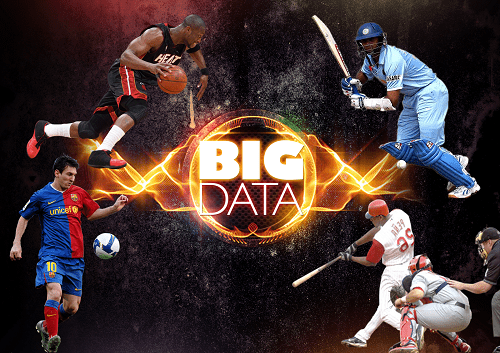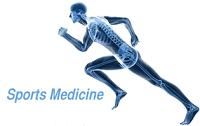Interview: Bill Moreau, USOC on Empowering World’s Best Athletes through Analytics.
CNBC recently quoted this KDnuggets interview which discussed how United States Olympic Committee uses Big Data, how athletes respond to Analytical insights, integration of sports medicine into sports performance and sports injury.
Recent CNBC article High-tech sports medicine gives US Olympic skiers and snowboarders an edge
mentioned KDnuggets
This quote refers to an interview with Dr. Bill Moreau conducted by Anmol Rajpurohit for KDnuggets, which we repost below,
By Anmol Rajpurohit.
 Dr. Bill Moreau, DC, DACBSP, CSCS is managing director of sports medicine at United States Olympic Committee(USOC) . He is a chiropractic physician and conservative evidence-based sports medicine clinician. In his current role, he oversees the organization’s sports medicine activities – including providing medical care to U.S. athletes at the Olympic Games and flagship U.S. Olympic Training Center in Colorado Springs, Colorado – and the USOC’s National Medical Network.
Dr. Bill Moreau, DC, DACBSP, CSCS is managing director of sports medicine at United States Olympic Committee(USOC) . He is a chiropractic physician and conservative evidence-based sports medicine clinician. In his current role, he oversees the organization’s sports medicine activities – including providing medical care to U.S. athletes at the Olympic Games and flagship U.S. Olympic Training Center in Colorado Springs, Colorado – and the USOC’s National Medical Network.
He served as Team USA’s medical director at the London 2012 Olympic Games and the Sochi 2014 Olympic Winter Games, in which he was responsible for administering medical care to more than 500 athletes as provided by more than 100 medical providers.
Dr. Moreau has more than 30 years of clinical expertise in both general practice and sports medicine. He serves on the editorial review board of the Journal of Chiropractic Medicine and has served for many years with the American Chiropractic Board of Sports Physicians.
Here is my interview with him:
Anmol Rajpurohit Q1. How does USOC leverage Big Data? What are the key decisions for which you rely on Data Science?

Dr. Bill Moreau: The key decisions I make are related to the healthcare of the best athletes in the world. When my team and I can use evidence based medicine to drive decisions, it clearly makes a big difference in the outcomes of care. The USOC is a large sport organization that works with over 50 National Governing Bodies of sport. The challenges of working with 50 different types of athletes is what makes work fun.
The USOC Sports Medicine team identifies and analyzes the types and amounts of decision driving data collected from our electronic health record system, GE Centricity Practice Solution, to produce the best end result for our athletes. The 50 sports have many sub sport specifics and each of these disciplines varies in terms of the metrics measured, and the quality and frequency of collection. Therefore creating data platforms that allow our science and medical personnel to collect, analyze and act on data across sport disciplines is an exciting challenge that the USOC develops on a daily basis.
data collected from our electronic health record system, GE Centricity Practice Solution, to produce the best end result for our athletes. The 50 sports have many sub sport specifics and each of these disciplines varies in terms of the metrics measured, and the quality and frequency of collection. Therefore creating data platforms that allow our science and medical personnel to collect, analyze and act on data across sport disciplines is an exciting challenge that the USOC develops on a daily basis.
As we improve our ability to incorporate data into our analyses and processes we have been able to create impactful reports for Team USA. Improved data analysis is a key focus of the USOC to drive medicine as well as high performance outcomes.
AR: Q2. How do athletes and coaches respond to the insights (and eventually, decisions) coming from Big Data?
BM: Improved performance outcomes can include maintaining health as well as sport specific metrics.

Today’s generation correctly expects immediate results from any applications of new technology. Careful selection of meaningful data products and reports are only impactful when they are shared with end users. Early successes can help create momentum for new data science projects.

When working with decision makers it is important to know that you research the right question, maintain your direction, review the results in regards to quality of the information and packaging of the information before advancing the materials outside the research team. All parties also need to start the process by recognizing that data is a piece in the decision making matrix that will be considered alongside other decision analysis variables.
AR: Q3. What role does Analytics play in the integration of sports medicine into sports performance?
 BM: A healthy team competes best. Sports medicine analytics can improve athlete health and prevent injury and illness. The integration across sport science and medicine disciplines leads to helping all invested partners to better understand business practices, clinical care and performance trends which will ultimately create a foundation for measurable resource and clinical applications to better drive decisions directed at health and performance.
BM: A healthy team competes best. Sports medicine analytics can improve athlete health and prevent injury and illness. The integration across sport science and medicine disciplines leads to helping all invested partners to better understand business practices, clinical care and performance trends which will ultimately create a foundation for measurable resource and clinical applications to better drive decisions directed at health and performance.
For example, if the data science team can identify trends in a team’s blood work and report these finding back to the sport medicine, nutrition and physiology departments, an integrated action plan can be made to address the effect of nutrition and physiology on the athlete’s response to training.
AR: Q4. What are some of the most important attributes correlated to sports injury or illness?
BM: The best predictor of future injury is previous injury. This holds true across nearly all injury types and sport disciplines. A well performed history and physical examination is the cornerstone to every patient interaction. The USOC has developed methodologies whereby we can measure and extract from the USOC practice management electronic health record, GE Centricity Practice Solution, to create algorithms to predict indicators of future injury risk that are specific to sport discipline and gender. As our data set grows the strength and ultimate value of these risk indicators continues to expand.
performed history and physical examination is the cornerstone to every patient interaction. The USOC has developed methodologies whereby we can measure and extract from the USOC practice management electronic health record, GE Centricity Practice Solution, to create algorithms to predict indicators of future injury risk that are specific to sport discipline and gender. As our data set grows the strength and ultimate value of these risk indicators continues to expand.
This was the first part of the interview. See also
Related:
The personal evaluations of USSA athletes, and dozens of other Team USA athletes, are overseen by Dr. Bill Moreau, vice president of sports medicine at the U.S. Olympic Committee (USOC). He and his associates leverage big data to assist trainers and coaches in designing individual regimens. "When we can use evidence-based medicine to drive decisions, it clearly makes a big difference in the outcomes of care," Moreau told the data analytics website kdnuggets.com.
This quote refers to an interview with Dr. Bill Moreau conducted by Anmol Rajpurohit for KDnuggets, which we repost below,
By Anmol Rajpurohit.
 Dr. Bill Moreau, DC, DACBSP, CSCS is managing director of sports medicine at United States Olympic Committee(USOC) . He is a chiropractic physician and conservative evidence-based sports medicine clinician. In his current role, he oversees the organization’s sports medicine activities – including providing medical care to U.S. athletes at the Olympic Games and flagship U.S. Olympic Training Center in Colorado Springs, Colorado – and the USOC’s National Medical Network.
Dr. Bill Moreau, DC, DACBSP, CSCS is managing director of sports medicine at United States Olympic Committee(USOC) . He is a chiropractic physician and conservative evidence-based sports medicine clinician. In his current role, he oversees the organization’s sports medicine activities – including providing medical care to U.S. athletes at the Olympic Games and flagship U.S. Olympic Training Center in Colorado Springs, Colorado – and the USOC’s National Medical Network.
He served as Team USA’s medical director at the London 2012 Olympic Games and the Sochi 2014 Olympic Winter Games, in which he was responsible for administering medical care to more than 500 athletes as provided by more than 100 medical providers.
Dr. Moreau has more than 30 years of clinical expertise in both general practice and sports medicine. He serves on the editorial review board of the Journal of Chiropractic Medicine and has served for many years with the American Chiropractic Board of Sports Physicians.
Here is my interview with him:
Anmol Rajpurohit Q1. How does USOC leverage Big Data? What are the key decisions for which you rely on Data Science?

Dr. Bill Moreau: The key decisions I make are related to the healthcare of the best athletes in the world. When my team and I can use evidence based medicine to drive decisions, it clearly makes a big difference in the outcomes of care. The USOC is a large sport organization that works with over 50 National Governing Bodies of sport. The challenges of working with 50 different types of athletes is what makes work fun.
The USOC Sports Medicine team identifies and analyzes the types and amounts of decision driving
 data collected from our electronic health record system, GE Centricity Practice Solution, to produce the best end result for our athletes. The 50 sports have many sub sport specifics and each of these disciplines varies in terms of the metrics measured, and the quality and frequency of collection. Therefore creating data platforms that allow our science and medical personnel to collect, analyze and act on data across sport disciplines is an exciting challenge that the USOC develops on a daily basis.
data collected from our electronic health record system, GE Centricity Practice Solution, to produce the best end result for our athletes. The 50 sports have many sub sport specifics and each of these disciplines varies in terms of the metrics measured, and the quality and frequency of collection. Therefore creating data platforms that allow our science and medical personnel to collect, analyze and act on data across sport disciplines is an exciting challenge that the USOC develops on a daily basis.
As we improve our ability to incorporate data into our analyses and processes we have been able to create impactful reports for Team USA. Improved data analysis is a key focus of the USOC to drive medicine as well as high performance outcomes.
AR: Q2. How do athletes and coaches respond to the insights (and eventually, decisions) coming from Big Data?
BM: Improved performance outcomes can include maintaining health as well as sport specific metrics.

It is up to the data science team to meet the challenge of cross walking the data into a meaningful tool for the end users by showing both evidence and real world applications that focus on improved performance outcomes. We need to speak for the data and make the data connected to the end user.
Today’s generation correctly expects immediate results from any applications of new technology. Careful selection of meaningful data products and reports are only impactful when they are shared with end users. Early successes can help create momentum for new data science projects.

Big data is an exciting development for sport scientists, including sports medicine practitioners, but the final product can be intimidating and quickly discarded if it is not presented in the format that the end user is most comfortable with in regards to receiving information. Simplifying the process of data collection and the resultant reporting with user friendly visual analytics has been crucial for creating buy in.
When working with decision makers it is important to know that you research the right question, maintain your direction, review the results in regards to quality of the information and packaging of the information before advancing the materials outside the research team. All parties also need to start the process by recognizing that data is a piece in the decision making matrix that will be considered alongside other decision analysis variables.
AR: Q3. What role does Analytics play in the integration of sports medicine into sports performance?
 BM: A healthy team competes best. Sports medicine analytics can improve athlete health and prevent injury and illness. The integration across sport science and medicine disciplines leads to helping all invested partners to better understand business practices, clinical care and performance trends which will ultimately create a foundation for measurable resource and clinical applications to better drive decisions directed at health and performance.
BM: A healthy team competes best. Sports medicine analytics can improve athlete health and prevent injury and illness. The integration across sport science and medicine disciplines leads to helping all invested partners to better understand business practices, clinical care and performance trends which will ultimately create a foundation for measurable resource and clinical applications to better drive decisions directed at health and performance.
For example, if the data science team can identify trends in a team’s blood work and report these finding back to the sport medicine, nutrition and physiology departments, an integrated action plan can be made to address the effect of nutrition and physiology on the athlete’s response to training.
AR: Q4. What are some of the most important attributes correlated to sports injury or illness?
BM: The best predictor of future injury is previous injury. This holds true across nearly all injury types and sport disciplines. A well
 performed history and physical examination is the cornerstone to every patient interaction. The USOC has developed methodologies whereby we can measure and extract from the USOC practice management electronic health record, GE Centricity Practice Solution, to create algorithms to predict indicators of future injury risk that are specific to sport discipline and gender. As our data set grows the strength and ultimate value of these risk indicators continues to expand.
performed history and physical examination is the cornerstone to every patient interaction. The USOC has developed methodologies whereby we can measure and extract from the USOC practice management electronic health record, GE Centricity Practice Solution, to create algorithms to predict indicators of future injury risk that are specific to sport discipline and gender. As our data set grows the strength and ultimate value of these risk indicators continues to expand.
This was the first part of the interview. See also
Related:
